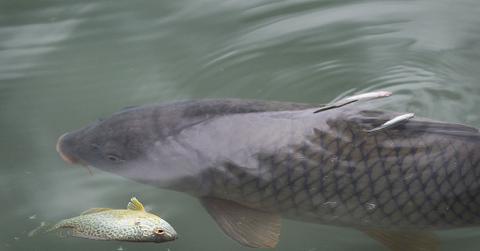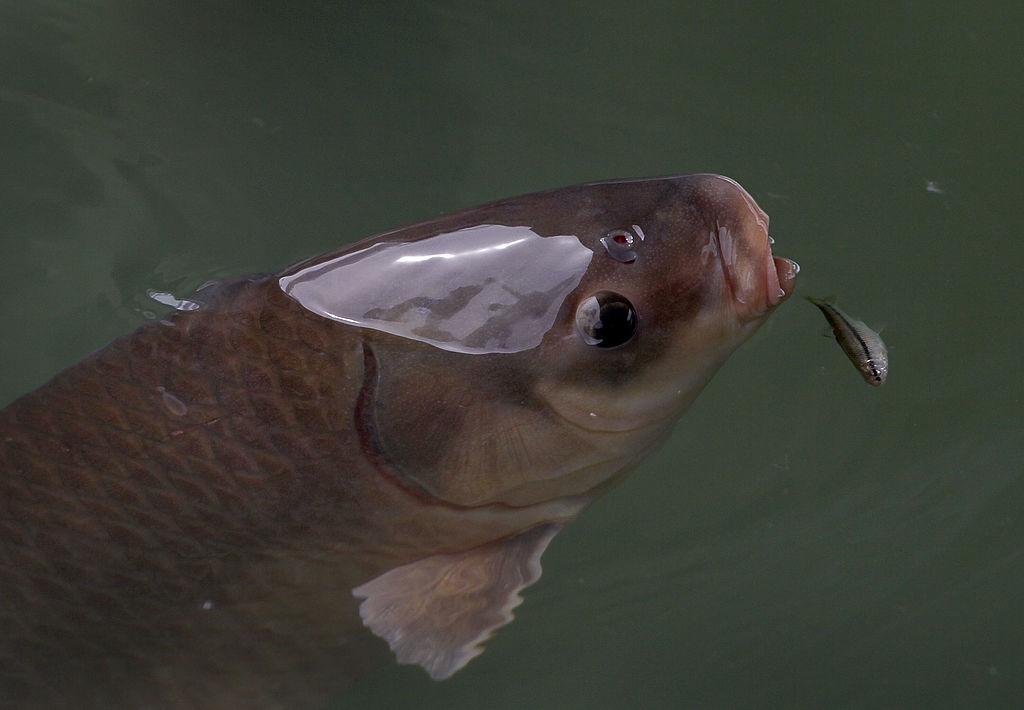Yes, Asian Carp Are an Invasive Species — Here’s What You Should Know
Published March 1 2023, 4:43 p.m. ET

Invasive species in the U.S. aren’t unheard of. In fact, you might even be familiar with some of them — perhaps you’ve seen headlines about zebra mussels in the Great Lakes or Burmese pythons in Florida.
Asian carp are another invasive species making headlines — and not in a good way. Not only do they pose a threat to native wildlife, but they can also be incredibly difficult to get rid of.
Why are Asian carp considered invasive?

An invasive species is one that is not native to an environment, resulting in harm to the ecosystem, according to The National Wildlife Federation (NWF). Typically, these species tend to reproduce and spread quickly.
Asian carp — a collective name that refers to black carp, silver carp, grass carp, and bighead carp, according to the National Park Service (NPS) — encompass all of those features.
The species is native to both Europe and Asia, but they were introduced into the U.S. as captive fish to help control the growth of algae, weeds, and parasites. But eventually, they escaped and made their way into the Mississippi River. They continued to move North, even reaching as far as Minnesota, the NPS explained.
This became a big problem. Native fish populations in rivers and lakes are severely damaged by Asian carp, mostly because they “out-compete other fish,” according to the NPS. This means that they takeaway food and space from native wildlife. The species can also affect water quality, which can lead to sensitive organisms being killed off.
Not only are Asian carp a threat to native fish populations, but they can also be a threat to humans. For example, silver carp tend to jump out of the water in order to escape threats — this action could injure recreationists out on the water.
The NPS sums up the seriousness of the invasive species: “Asian carp have been known to dominate entire streams, effectively pushing out the native species.”
Is there a way to get rid of the invasive Asian carp?
Asian carp can spread to different bodies of water through flooding or by jumping over barriers. Many experts are worried about the species' continued spreading, as it could cause major issues for areas such as the Great Lakes or Northern Minnesota, the NPS explained.
Stopping the spread of Asian carp and getting them out of our waters is no walk in the park, but it’s not impossible.
As mentioned earlier, silver carp are known to jump out of the water — this is definitely a problem, but it’s one we can use to our advantage. According to the United States Geological Survey (USGS), a study found that this specific species responds strongly to certain sounds, allowing them to be diverted toward nets or strategic areas.
And in an entertaining turn of events, some towns put this research to good use in local competitions. WTTW reported on a “Redneck Fishing Tournament” that targets silver carp. When the noise of the boats causes the fish to jump out of the water, the competitors use nets to catch them.
That is certainly one way to get rid of them, but you don’t have to hold a whole tournament to help the cause. According to the NPS, actions like draining and rinsing your boat, reporting catches, and not transporting water or bait from infested areas are all great.
Don’t forget to spread the word too! The more people that know about Asian carp and what they can do about the issue, the better.